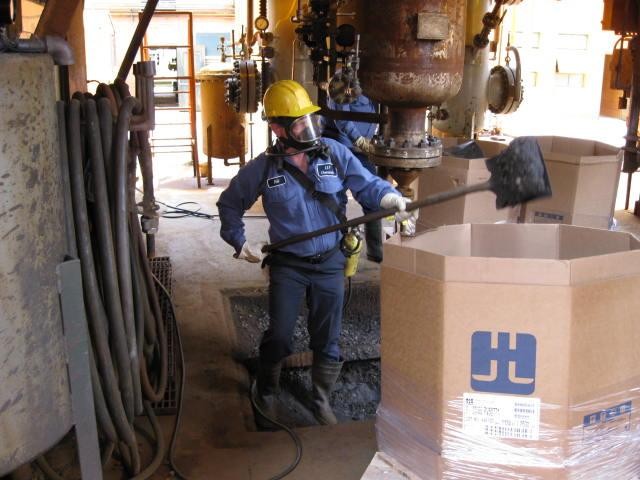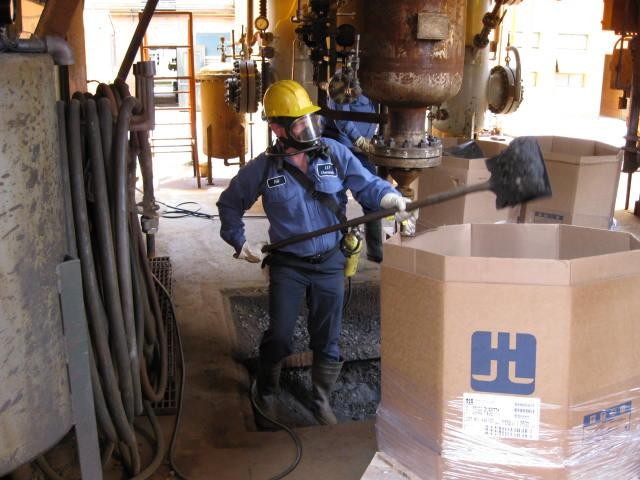When an accident happens, word gets around quickly. That may be why you've never heard of International Specialty Products Chemicals. Tucked away on Redstone's south end, the tenant company has gone 10 years without a lost-time injury.
"We reached 10 years on May 7," Ken Riley, ISP environmental health and safety manager, said. "So we're 10 years and counting."
A lost-time accident is any mishap that causes an employee to miss work. It doesn't include paper cuts and stubbed toes - just the injuries that an ice pack or Band-Aid can't fix. If it takes minor stitches or a prescription, the injury is recorded, even if it doesn't cause lost time. When recordable injuries that didn't result in lost time for the employee are tallied, their record is still impressive at four.
"If you're told that you have to be off work, it's a lost-time injury," Riley said. "Our record in this industry is huge. We have a competitor in town that, I'm told, just celebrated 99 days without a lost-time injury. We've got 3,600 days."
An accident-free decade is impressive, more so when you factor in that ISP is a working chemical production facility. Housed in building 5565 on Industrial Road, the plant manufactures iron pentacarbonyl in liquid form and carbonyl iron powder. It is sold to a variety of customers as a component of products ranging from screwdriver tips to multivitamins.
"It's used for a lot of stuff," Riley said. "The largest part of our business is used for metal injection molding."
At the end of World War II, the Army used ISP's products as a component of radar equipment, hence their on post location. As radar technology advanced, their military sales became a smaller portion of their business. Today, their products are still purchased in a smaller quantity by military contractors for use in stealth technology.
"Our company helped the Army build this facility," Riley said. "We moved here permanently from New Jersey later. We've been leasing this space since 1949."
They continue to lease the 13-acre location from Redstone, making them one of the oldest continuing tenants on post. In fact, they were approached a few years ago by local historians.
"We've been added to the historical registry," Riley said. "We have some of the last original buildings left on the Arsenal."
The site works on a 24-hour basis, with the exception of the two weeks per year they are closed for maintenance. Their 24 employees use pressure, temperature and chemical reaction to produce 1.4 million pounds of product per year.
Riley credits those same employees with the safety record's longevity. Because of their dedication to keeping it going, he's not terribly concerned about publicity jinxing the record.
"No one wants to be the person who ended the record. It's made everyone more proactive. They watch out for each other," Riley said. "Our work force has a lot of experience. They know their job. They've had the training they need. They have positive peer pressure to stay safe."


Social Sharing